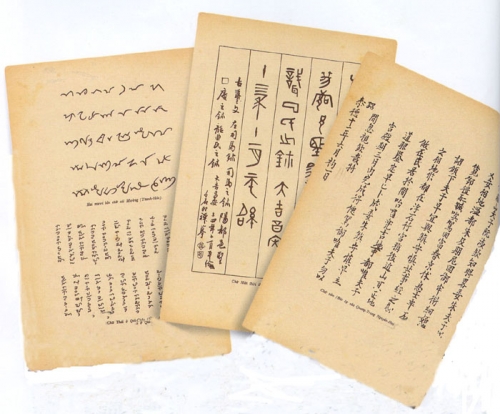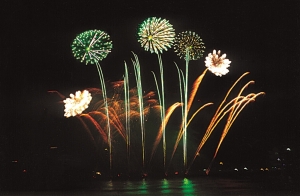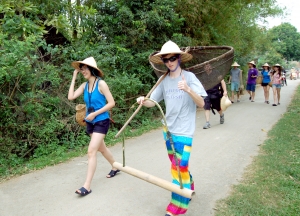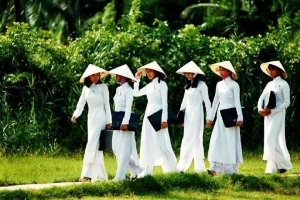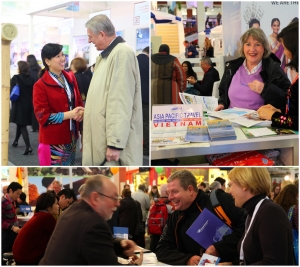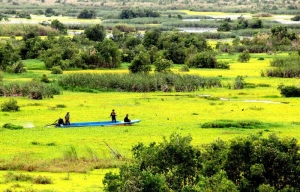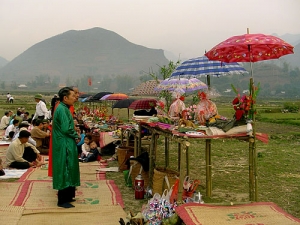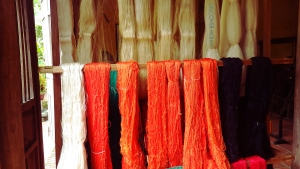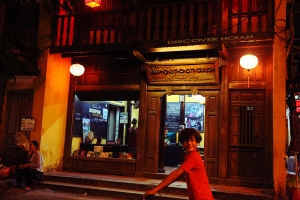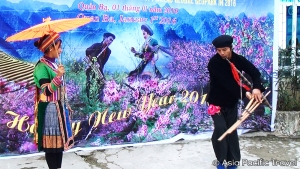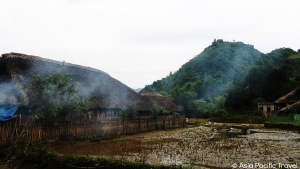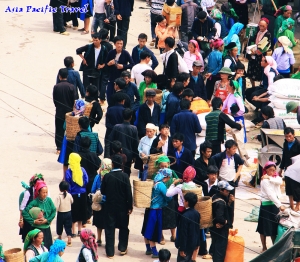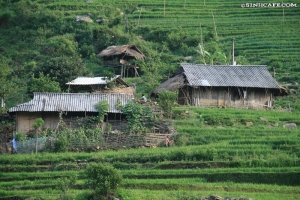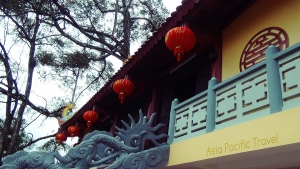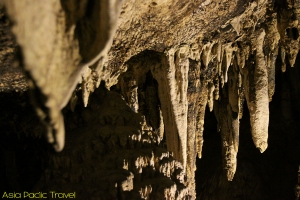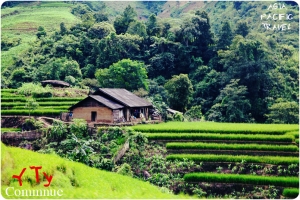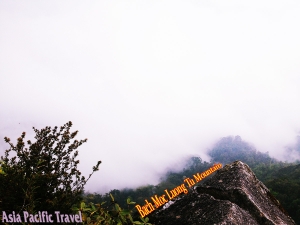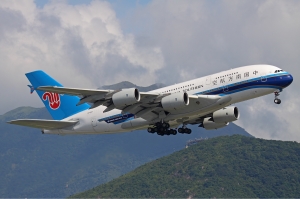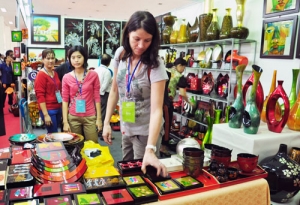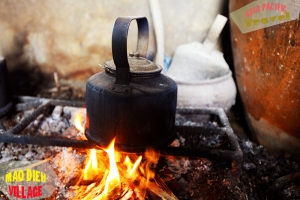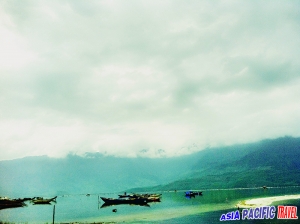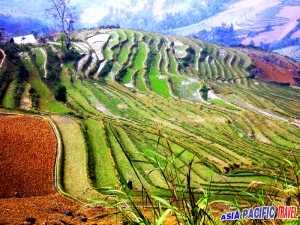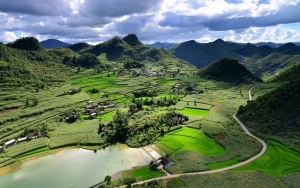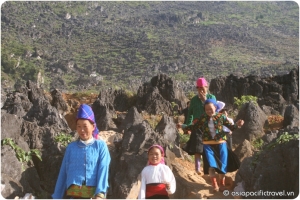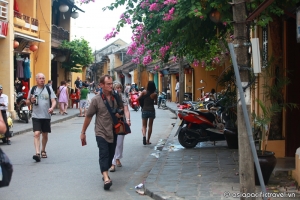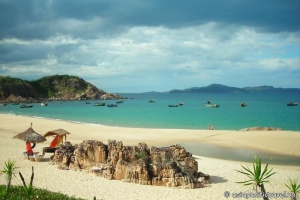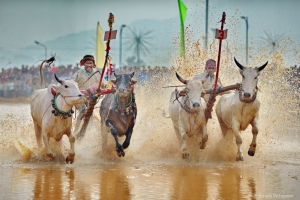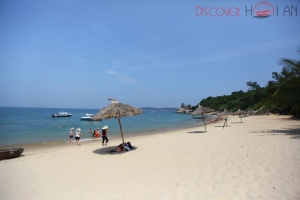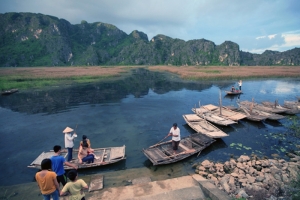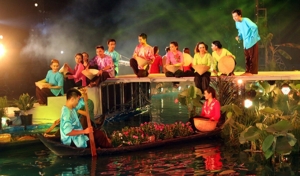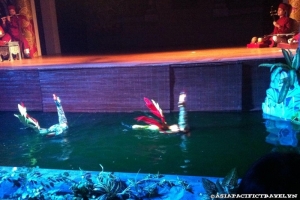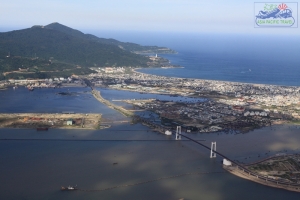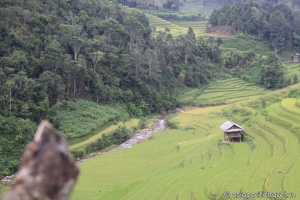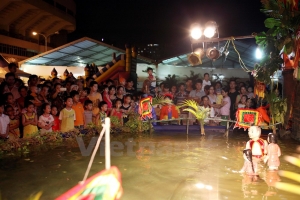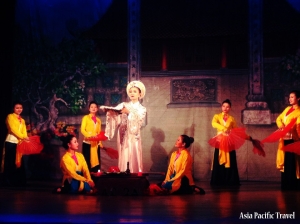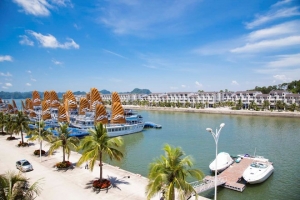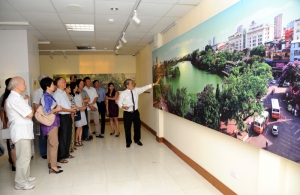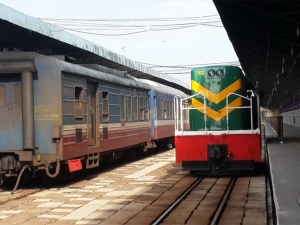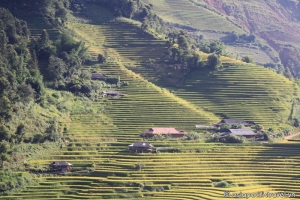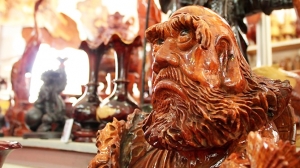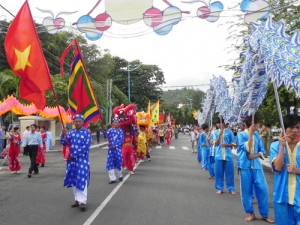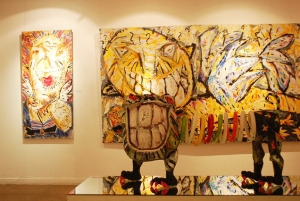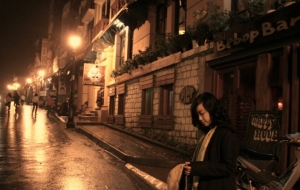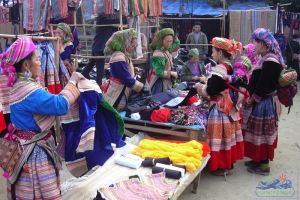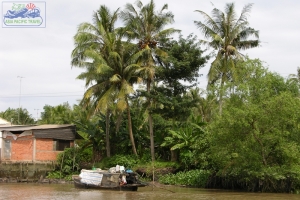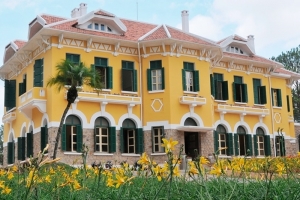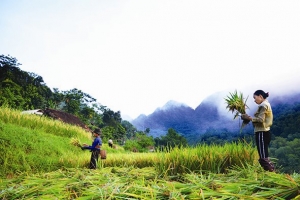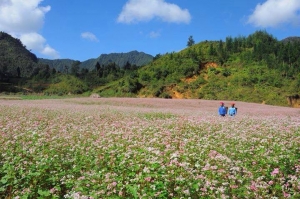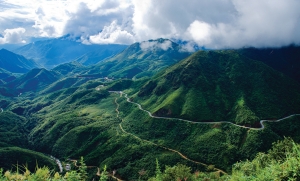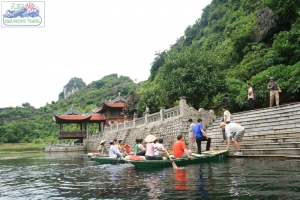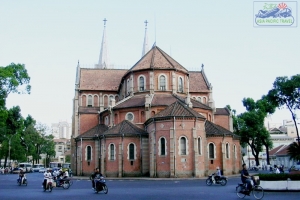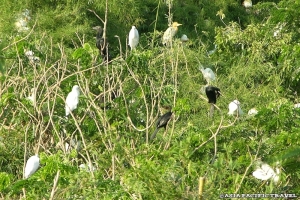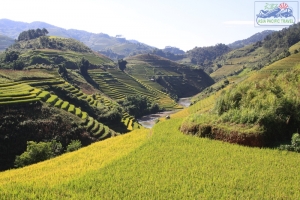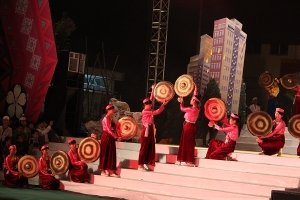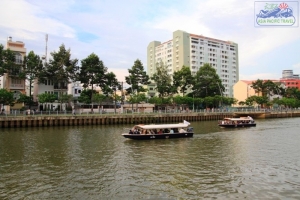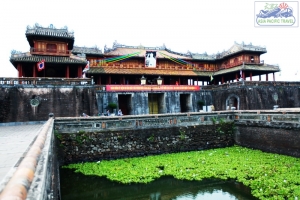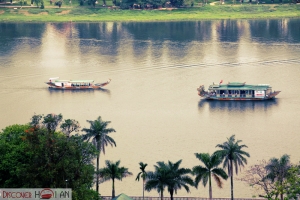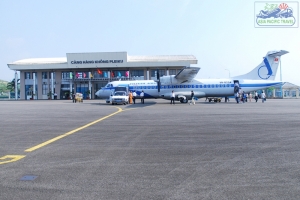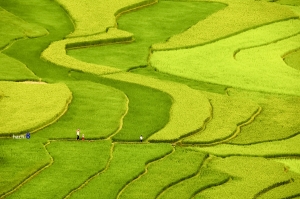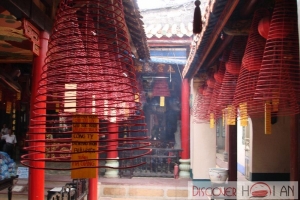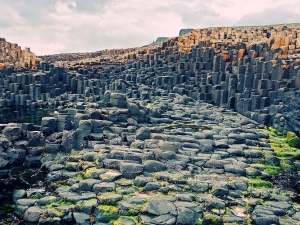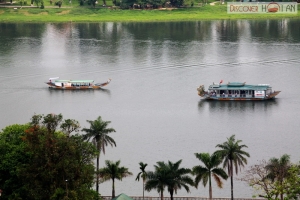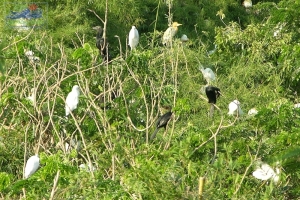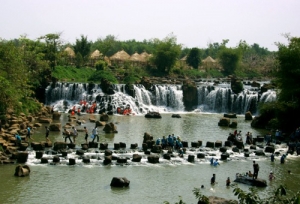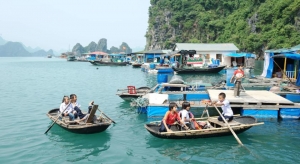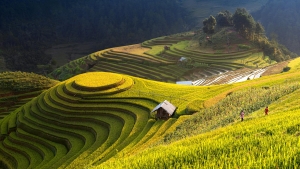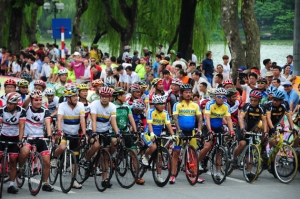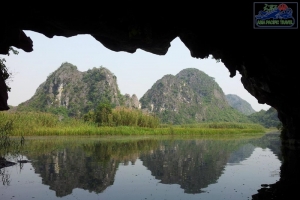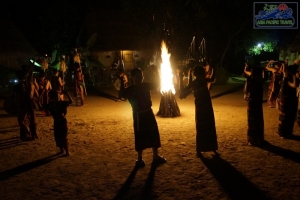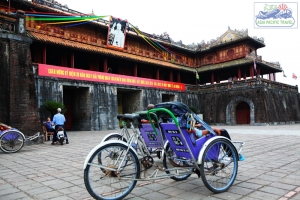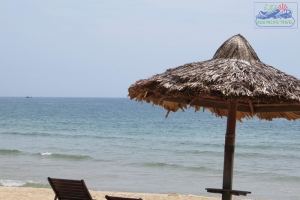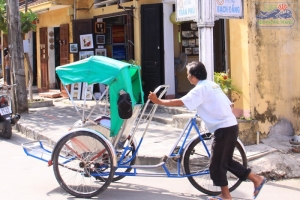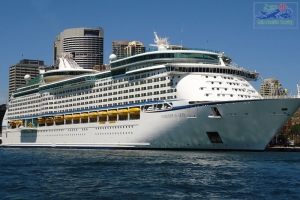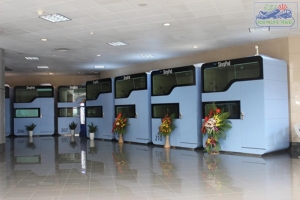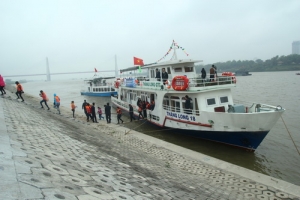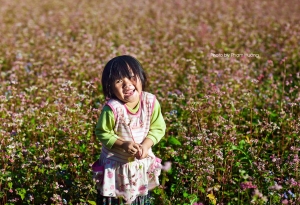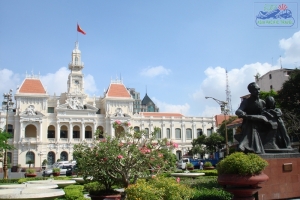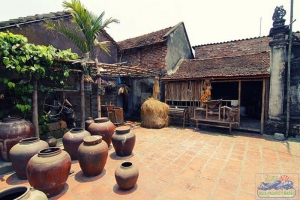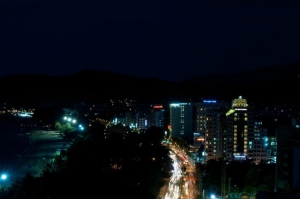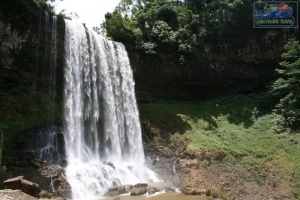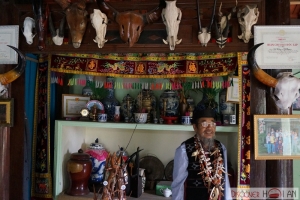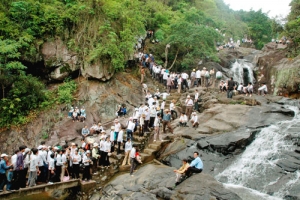Few writers of South Vietnam had gained comparatively successful achievements of literary works prior to 1945, but against a background of relative stability, prosperity and artistic freedom in the late 1950s and early 1960s. At that time, active literary scene began to emerge in South Vietnam, initially under the influence of a circle of writers, linguists and educators who had relocated from the north. Importantly, the proliferation of private publishing companies , particularly in Sai Gon, was developed remarkably.
Emigré prose writers from the north regrouping in the south after 1954 included not only established figures such as Nhất Linh, Tam Lang (Vũ Đình Chí, 1901-1986), Trọng Lang (Trần Tán Cửu, 1906-1986), Lãng Nhân (Phùng Tất Đắc, b 1907), Đái Đức Tuấn (Tchya, 1908-1969), Y Uyên (Nguyễn Văn Uy, 1911-1969) and Vũ Bằng (1913-1984) but also younger novelists and short story writers such as Nguyễn Thị Vinh (b 1924), Dương Nghiễm Mậu (Phí Ích Nghiễm, b 1936), Duyên Anh (Vũ Mộng Long, b 1936), Nhật Tiến (Bùi Nhật Tiến, b 1936), Thảo Trường (Trần Duy Hinh, b 1939), Lê Tất Điều (b 1942) and Trùng Dương (Nguyễn Thị Thái, b 1944).
It was largely under their influence that southern prose writing came of age during the period 1954-1975 with the works of Bình Nguyên Lộc (Tô Văn Tuấn, b 1914), Võ Phiến (b 1925), Sơn Nam (Phạm Minh Tày, b 1926), Ngọc Linh (Dương Đại Tâm, b 1935) and Nguyễn Thị Thụy Vũ (Nguyễn Băng Lĩnh, b 1939) from the south and Linh Bảo (Võ Thị Diệu Viên, b 1926), Minh Đức Hoài Trinh (Võ Thị Hoài Trinh, b 1930), Nguyễn Xuân Hoàng (b 1937), Túy Hồng (Nguyễn Thị Túy Hồng, b 1938), Nhã Ca (Trần Thị Thu Vân, b 1939), Nguyễn Thị Hoàng (b 1939) and Nguyễn Mộng Giác (b 1940) from the central provinces.
However, the southern literary flowering proved short-lived; whilst the overthrow of the Diệm government in 1963 brought greater artistic freedom, growing political instability, the escalation of war with the north and the steady slide into official corruption and decadence which attended the influx of large numbers of American troops in the period after 1963 engendered what one scholar has called a 'culture of entertainment'. In a radical departure from the past, a people brought up to associate literature with education and moral improvement turned increasingly for escapism to cheap imported martial arts novels and sentimental romances. In order to survive in this new climate many members of the literary community began writing daily feuilletons (serialised stories) for the newspapers, whilst others turned out novels featuring unusually racy subject matter. Nonetheless the last years of the Sài Gòn regime did see some literary works of note, notably the novels of Nhật Tiến, Lê Tất Diều and Nhã Ca with their vivid descriptions of the horrors of war.
 In the north the immediate aftermath of the August Revolution saw the establishment of the Nhân văn Giai phẩm writers movement, the name of which was drawn from its two journals Nhân văn (Humanism) and Giai phẩm (Works of Beauty). Established by a group of northern intellectuals which included writers Trần Dần, Hoàng Cầm (b 1922), Phan Khôi (1887-1959), Nguyễn Hữu Đang, Trương Tửu, Trần Đức Thảo and Thụy An, this movement aimed to secure a greater measure of intellectual independence for the Vietnamese literary community. However the trial which followed firmly established the principle that Vietnamese literature existed to advance socialism and must be guided by the Communist Party vanguard. With the establishment of the Vietnam Writers' Association in 1957 northern literature became firmly subordinated to the task of building the socialist future.
In the north the immediate aftermath of the August Revolution saw the establishment of the Nhân văn Giai phẩm writers movement, the name of which was drawn from its two journals Nhân văn (Humanism) and Giai phẩm (Works of Beauty). Established by a group of northern intellectuals which included writers Trần Dần, Hoàng Cầm (b 1922), Phan Khôi (1887-1959), Nguyễn Hữu Đang, Trương Tửu, Trần Đức Thảo and Thụy An, this movement aimed to secure a greater measure of intellectual independence for the Vietnamese literary community. However the trial which followed firmly established the principle that Vietnamese literature existed to advance socialism and must be guided by the Communist Party vanguard. With the establishment of the Vietnam Writers' Association in 1957 northern literature became firmly subordinated to the task of building the socialist future.
 During the 1960s and early 1970s the northern literary œvre continued to identify closely with the national and ideological cause. Amongst the best-known patriotic poems of this period were Chặng đường hành quân ('On the Campaign Trail', 1960) by Xuân Miễn, Cuộc chia ly màu đỏ ('The Red Farewell', 1964) by Nguyễn Mỹ (1935-1971), Ra trận ('To the Front', 1972) by Tố Hữu and Những bài thơ đánh giặc ('Poems Against the Enemy', 1972) by Chế Lan Viên. Important revolutionary poems were also written during this period by Minh Huệ (Nguyễn Đức Thái, 1927-2003), winner of numerous awards for his works on the Xô Viết Nghệ Tĩnh uprising of 1930-1931 and the life of Hồ Chí Minh; Giang Nam (Nguyễn Sung, b 1929) and Thu Bồn (Hà Đức Trọng, 1935-2003), both recipients of the Southern Revolutionary National Fatherland Front's Nguyễn Đình Chiểu Award for Literature; and a group of younger poets which included Hoàng Minh Châu (b 1930), Phạm Ngọc Cảnh (Vũ Ngàn Chi, b 1934), Nguyễn Xuân Thâm (b 1936), Võ Văn Trực (b 1936), Văn nghệ (Literary Arts) Newspaper Awards winners Dương Hương Ly (Bùi Minh Quốc, b 1940), Phạm Tiến Duật (b 1941), Bằng Việt (b 1941), Hữu Thỉnh (b 1942), Nguyễn Khoa Điềm (b 1943), Anh Ngọc (Ly Sơn, b 1943), Nguyễn Duy (b 1948), Nguyễn Đức Mậu (Hương Hài Hưng, b 1948) and Hoàng Nhuận Cầm (b 1952), playwright Lưu Quang Vũ (1948-1988) and war martyrs Nguyễn Trọng Định (1939-1968), Trần Quang Long (1941-1968) and Lê Anh Xuân (1940-1968).
During the 1960s and early 1970s the northern literary œvre continued to identify closely with the national and ideological cause. Amongst the best-known patriotic poems of this period were Chặng đường hành quân ('On the Campaign Trail', 1960) by Xuân Miễn, Cuộc chia ly màu đỏ ('The Red Farewell', 1964) by Nguyễn Mỹ (1935-1971), Ra trận ('To the Front', 1972) by Tố Hữu and Những bài thơ đánh giặc ('Poems Against the Enemy', 1972) by Chế Lan Viên. Important revolutionary poems were also written during this period by Minh Huệ (Nguyễn Đức Thái, 1927-2003), winner of numerous awards for his works on the Xô Viết Nghệ Tĩnh uprising of 1930-1931 and the life of Hồ Chí Minh; Giang Nam (Nguyễn Sung, b 1929) and Thu Bồn (Hà Đức Trọng, 1935-2003), both recipients of the Southern Revolutionary National Fatherland Front's Nguyễn Đình Chiểu Award for Literature; and a group of younger poets which included Hoàng Minh Châu (b 1930), Phạm Ngọc Cảnh (Vũ Ngàn Chi, b 1934), Nguyễn Xuân Thâm (b 1936), Võ Văn Trực (b 1936), Văn nghệ (Literary Arts) Newspaper Awards winners Dương Hương Ly (Bùi Minh Quốc, b 1940), Phạm Tiến Duật (b 1941), Bằng Việt (b 1941), Hữu Thỉnh (b 1942), Nguyễn Khoa Điềm (b 1943), Anh Ngọc (Ly Sơn, b 1943), Nguyễn Duy (b 1948), Nguyễn Đức Mậu (Hương Hài Hưng, b 1948) and Hoàng Nhuận Cầm (b 1952), playwright Lưu Quang Vũ (1948-1988) and war martyrs Nguyễn Trọng Định (1939-1968), Trần Quang Long (1941-1968) and Lê Anh Xuân (1940-1968).Throughout the American War leading prose writers of the 1940s and 1950s such as Nguyễn Công Hoan, Nguyên Hồng, Bùi Hiển, Tô Hoài, Nguyễn Văn Bổng, Chu Văn, Thanh Châu and Nguyễn Đình Thi continued to devote their work to the revolutionary cause. Other important novelists and short story writers emerging during this period included Thép Mới (Ánh Hồng, 1925-1991), Võ Huy Tâm (1926-1996), Nguyễn Trọng Oánh (1929-1993), Ngô Ngọc Bội (b 1929), Nguyễn Minh Châu (1930-1989), Nguyễn Khải (b 1930), Vũ Thị Thường (b 1930), Phan Tứ (Lê Khâm, 1930-1995), Vũ Bão (b 1931), Ma Văn Kháng (b 1936), Đỗ Chu (b 1944) and war martyrs Lê Vĩnh Hòa (1932-1967), Nguyễn Thi (Nguyễn Ngọc Tấn, 1928-1968) and Chu Cẩm Phong (1941-1971). Of particular importance was a small group of southern writers who had regrouped in the north after 1954 and now returned south into enemy territory to gather material for their compositions; these included novelists Nguyễn Quang Sáng (b 1932), Anh Đức (Bùi Đức Aùi, b 1935) and Nguyên Ngọc (1932).


